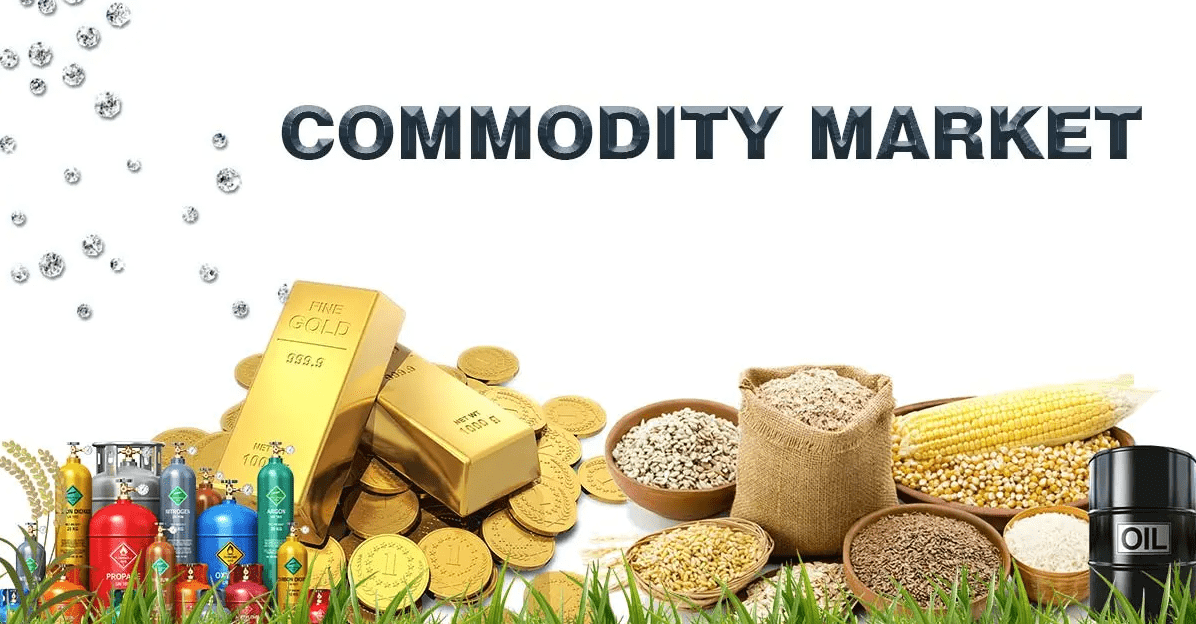
The world of investments is vast and diverse, offering multiple avenues for wealth creation. Among them, an often underutilized sector is the International Commodity Market. This market presents an array of opportunities to broaden your investment horizon, diversify your portfolio, and potentially generate significant returns. In this article, we’ll explore the untapped wealth-creation potential of Commodity Trading.
Understanding International Commodity Market

Image Source: sharebaazar.in
The International Commodity Market is a platform where various commodities like metals, energy, and agricultural products are traded. It provides investors with opportunities to invest in the tangible economy. Commodity Market Trading involves buying and selling these physical goods or raw materials, traded either in the spot market (for immediate delivery) or in the futures market (for delivery at a future date).
Benefits of Commodity Trading
Portfolio Diversification: Engaging in Commodity Market Trading allows you to spread your investment across different types of assets, thereby reducing risk. Commodities often show a low correlation with stocks and bonds, which can help insulate your portfolio against market volatility.
Inflation Protection: Commodities typically tend to rise in value during inflationary periods, thus providing an effective hedge against inflation. This is because the cost of goods and services increases during inflation, and commodities being the raw materials for these goods and services, naturally see a rise in their prices.
Potential for High Returns: Commodity Trading in the International Commodity Market can offer substantial returns during periods of supply shortages or high demand. For instance, a poor harvest may lead to an increase in the prices of agricultural commodities, benefiting those who have invested in them.
Global Economic Indicators: Commodities can act as indicators of global economic health. For instance, an increase in oil prices may indicate economic growth as industries and economies expand and consume more energy.
Accessibility: With the right Commodity Trading Service, trading commodities become accessible even to the average investor, opening up a new avenue for wealth generation.
Opportunity for Speculation: Commodity markets often experience significant price volatility. This volatility, while posing risks, also provides opportunities for speculators who can correctly predict price movements.
Liquidity: Certain commodities, such as gold and oil, have highly liquid markets. This means transactions can be quickly executed, reducing the risk of price changes between the time of decision-making and the execution of the trade.
Access to Emerging Markets: Many commodities are produced in emerging markets. By investing in these commodities, investors indirectly gain exposure to these markets, potentially benefiting from their growth.
Lower Margin Requirements: Trading in commodity futures often requires less capital than trading in equities. This is due to the lower margin requirements of futures contracts, making it more accessible to a larger number of investors.
Direct Exposure: Commodities provide a direct way to invest in physical assets like gold, oil, or agricultural products. For some investors, this direct exposure can be an attractive feature of commodity trading.
Effective Commodity Trading Strategies
Trend Following: This strategy in Commodity Trading involves identifying and following established trends within the Commodity Market. When a commodity’s price is on an upward trend, traders buy; when it’s on a downward trend, they sell. This requires continuous market monitoring.
Range Trading: This strategy involves identifying a range within which commodity prices fluctuate and making trades within that range. It’s based on the principle that commodity prices often revert to their mean over time.
News Trading: Traders using this strategy trade based on news events that could impact commodity prices. This could involve political developments, economic reports, weather forecasts, or other events that might affect supply and demand.
Breakout Trading: In this strategy, traders identify key levels that if broken, might lead to significant price movements. They then place trades based on these breakout points.
Hedging: Hedging involves taking a position in the futures market that is opposite to a position in the physical market. This is used to offset the risk of adverse price movements.
Momentum Trading: Traders using this strategy seek to ride the momentum in the price of a commodity. They buy when prices are rising rapidly and sell when prices are falling.
Pair Trading: This strategy involves trading two related commodities. For instance, if two commodities usually trade in line with each other and one starts to trade higher than the other, you could buy the lower-priced commodity and sell the higher-priced one, expecting that they will converge again.
Arbitrage: Arbitrage involves taking advantage of price differences between different markets. For instance, if a commodity is cheaper in one market than another, you could buy the commodity in the cheaper market and sell it in the more expensive one, making a profit from the price difference.
Technical Analysis: This involves analyzing historical price data and using technical indicators to predict future price movements. Traders use tools such as moving averages, RSI, and MACD to guide their trading decisions.
Fundamental Analysis: Traders using this strategy analyze macroeconomic data, supply and demand factors, and geopolitical events to make trading decisions. This requires a thorough understanding of the factors that influence commodity prices.
Choosing the Right Commodity Trading Service
Reputable Commodity Trading Services can provide access to international markets, offer robust trading platforms, and provide research and analytics to aid decision-making. A quality service will also offer education and customer support.
Risks in Commodity Trading
Despite its potential benefits, Commodity Market Trading also comes with risks. Prices can be highly volatile, impacted by global economic and political events, changes in supply and demand, and currency fluctuations. Therefore, thorough research and understanding are essential before venturing into this space.
Investing in the International Commodity Market holds promising potential for wealth generation. With an array of commodities available for trading, it offers an exciting way to diversify your portfolio beyond traditional investment instruments. The right Commodity Trading strategies, tailored to your risk tolerance and investment objectives, can unlock this potential and create significant wealth over time.
However, navigating the world of Commodity Market Trading can be complex, demanding a keen understanding of market dynamics, risk management, and strategic decision-making. That’s where a reliable Commodity Trading Service comes into play, and Eureka stands as an ideal partner in your commodity trading journey.
At Eureka, we provide comprehensive Commodity Trading Services designed to meet your unique investment needs. From providing access to major international commodity markets, and delivering real-time market insights, to extending unparalleled customer support – we’re here to guide you every step of the way.
With Eureka tap into the vast opportunities of International Commodity Trading. Allow us to assist you in leveraging the potential of the International Commodity Market to your advantage. After all, your financial success is our ultimate goal. Connect with us today, and let’s embark on your commodity trading journey together.







